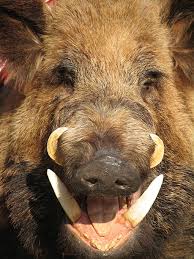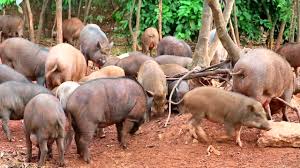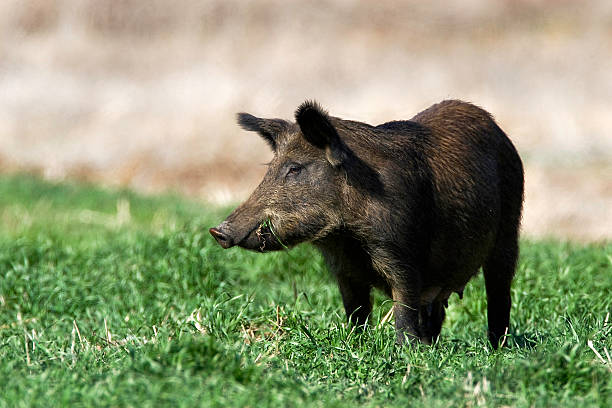Scientists and farmers were able to eradicate the invasive boll weevil, but a species that is almost as destructive continues to grow in population.
Wild hogs eat voraciously and breed like rabbits.
According to the Georgia Department of Natural Resources, over $150 million worth of crops are destroyed annually by the rooting monsters that can grow to an astounding 800 pounds.
MORE: Parker’s Kitchen hosts ribbon-cutting for its first Augusta convenience store
It is estimated that there are between 200,000 to 600,000 feral pigs residing in Georgia, but it is difficult to get a more accurate count because the animals are always on the move.
The DNR’s web guide states that aside from the occasional wolf, coyote or alligator picking off a piglet, the animals have no predators to cull the population. Far from the slovenly domestic pigs, wild hogs can run as fast as 30 miles per hour, making them difficult for anything other than a mountain lion to catch.
The swine’s favorite foods are soybeans, wheat, peanuts and sugarcane, but David Quebedeaux, a ranger for the Army Corps of Engineers, says nothing edible is off the table for the beasts to eat, even humans.

“They will eat anything, and I mean anything and you do not want to get attacked by one of them. It is gruesome what they can do. I would rather be attacked by a shark,” Quebedeaux said.
It is a fact that wild hogs kill more people annually than sharks, bears and alligators combined, and it is reported that hogs will attack a person near a femoral artery with their tusks and begin eating the victim before they bleed out.
Thankfully, the hogs do not seek out humans as prey; they generally only attack when startled or cornered. The are also extremely resilient, with hunters claiming to have emptied a full magazine into a charging boar and the beast kept going until it was riddled with rifle shot.
The story generally ends with the animal finally dropping dead at the hunter’s feet.
According to the University of Georgia, it was Spanish explorers that introduced the hogs to North America. It is recorded that Hernando de Soto crossed the Mississippi with a herd of pigs in 1541.
Today’s population of wild hogs mainly descended from pigs that escaped captivity; but, it is believed that the Spanish intentionally released hogs on some of Georgia’s barrier islands, such as Sapelo Island, for sport hunting.
According to Quebedeaux, there is no limited hunting season on private property, nor any limit to how many are killed.
“There are hunting guides that will even take you out in a helicopter and the meat is really good. It’s lean and very flavorful,” Quebedeaux said.

Farmers have tried everything, including human urine, to ward off the animals. However, wive’s tales aside, according to the USDA, people with gardens in rural areas should plant onion and garlic as a deterrent.
Sows travel together with their young in what are called “sounds,” while boars remain mostly solitary outside of breeding season.
Should a person encounter a hog in the wild, the best thing to do is try to make yourself seem as tall as possible and make loud noises. If that doesn’t work, head to the nearest tree!
Scott Hudson is the Senior Investigative Reporter and Editorial Page Editor for The Augusta Press. Reach him at scott@theaugustapress.com











